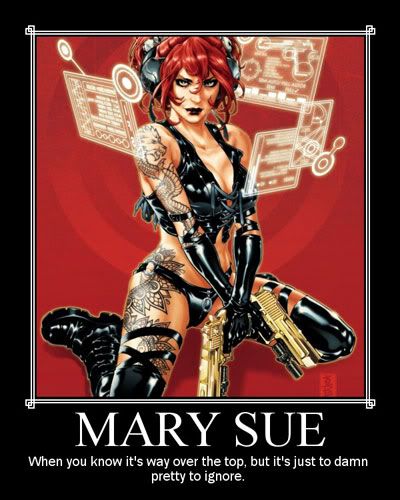
All right, nuggets, on your feet! We’re going to talk about something near and dear to my black little heart today, and I expect it’s a subject some of you have touched on before. I know I’ve been guilty of this, very recently in fact, so let me begin with an example.
In my current long-term writing project, there’s a reveal that happens at about the halfway mark. Our heroine’s been trotting along, doing her thing and generally being awesome, when she runs headlong into an adversarial brick wall and nearly gets herself killed. When she wakes up, she’s in an unfamiliar environment and made aware of some facts relevant to her situation that had previously been unknown to her. Once she gets over the shock, she’s pretty pissed about it.
When I originally envisioned the scene, it had about, oh, this much subtlety:

It’s an old familiar trap. I have a cool idea in my head, and I want to get it out in front of people as soon as possible to say “SEE, THIS IS COOL!” and have them all agree. But they might not, since their heads are throbbing from the abrupt noise and some of them are picking glass out of their faces. Apparently they ignored the notice about the people in the first couple rows possibly suffering grievous bodily harm.
Anyway, it should go without saying that you shouldn’t do this. How boring would it be if we knew right from the outset that the evil armor-wearing asthmatic overlord is really our hero’s father? Or that the quiet, patient and empathetic psychiatrist we’ve been following has been dead all along? Or the planet on which the hero’s crashed that’s populated by damn dirty apes isn’t an alien world, but our own Earth?
The aforementioned stories (now RUINED FOREVER for some I’m sure, sorry about that) work because the big reveal comes not only at the right time during the story but also in the right way. The secrets and cool moments of a story should, like the action and growth of characters, grow organically from the story’s plot and theme. As our characters grow and change, an earth-shaking revelation should be hard-hitting, but not blatant. It’s a balancing act, and will only come with practice.
While we’re on the subject of character growth, I’d like to touch on something while we’re discussing subtlety. Truly effective and lasting characters are ones that grow and change over time, rather than springing fully-formed of awesomeness from the head of the creator. I mean, sure, it’s cool to imagine yourself as the new kid on the block with killer guns akimbo skills and the sort of smile that’d make the opposite sex fall over themselves to get at you (or members of the same sex, or both) but how is that interesting for other people?

It’s something I’ve mentioned in the course of preparing myself for Star Trek Online, and Classholes Anonymous covered the subject better than I could. The only thing I have to add is this: Not only does a half-Vulcan, half-Romulan, half-Klingon, half-Caitian former Borg drone with powers of the Q who’s also Kirk’s half-grandchild piss people off, it’s thoroughly uninteresting. Not to mention there’s a failure at math somewhere in there.
Be subtle, nuggets. Maintain the mystery. The less you give away, the more people will want to get from you. And, ideally, they’ll be willing to pay for it.


Well said, brother. When I was a beta-reader for a Gundam Wing fanfic mailing list (shut up.) such plot-progression problems were frequent, and drove me BONKERS. Teaching pacing and subtlety to those folks was murder on my patience.